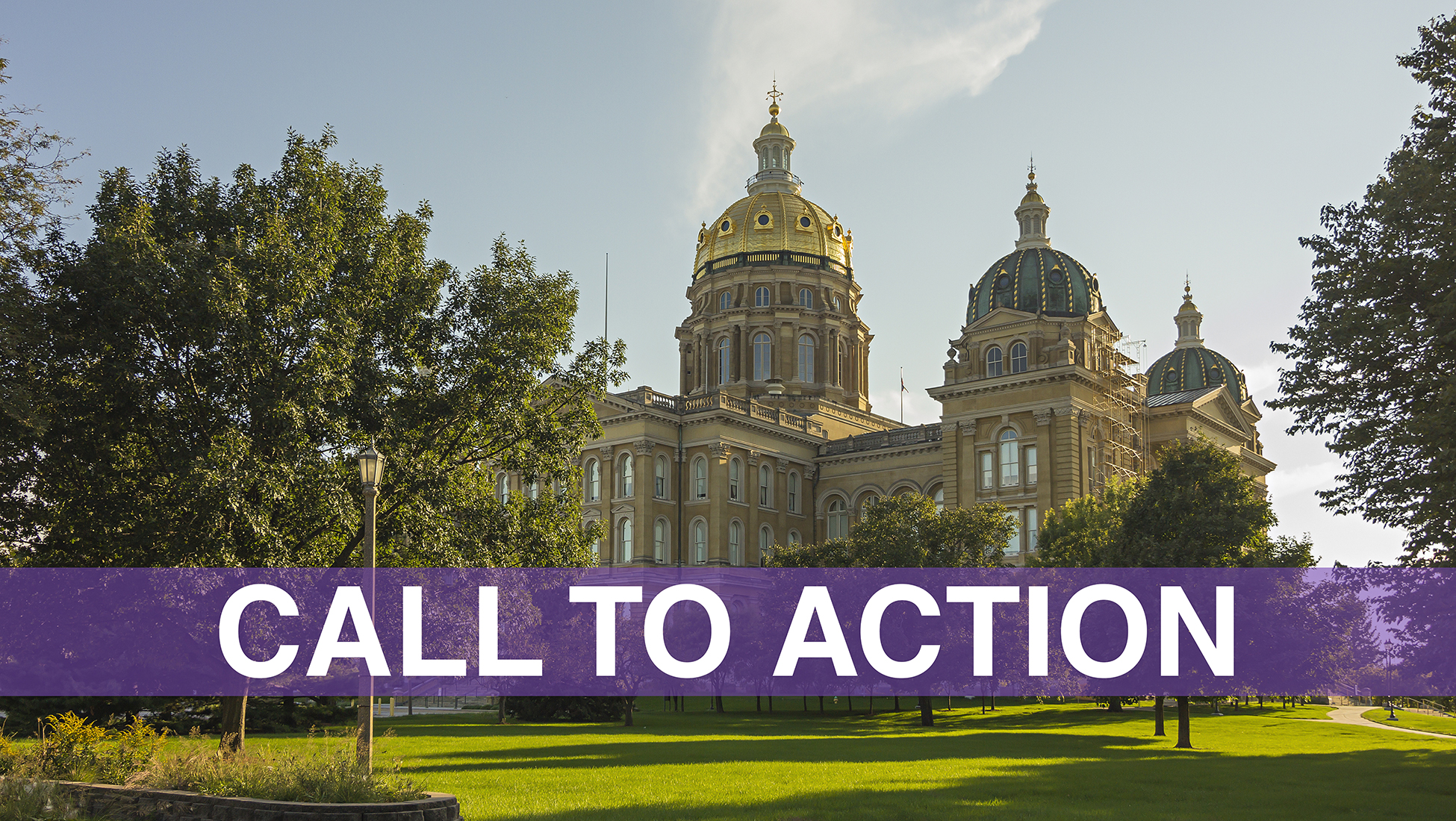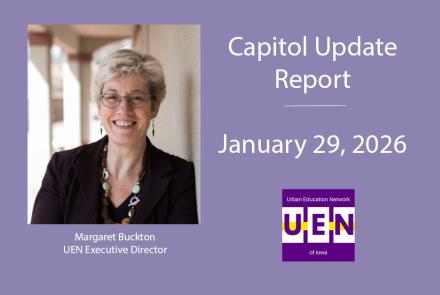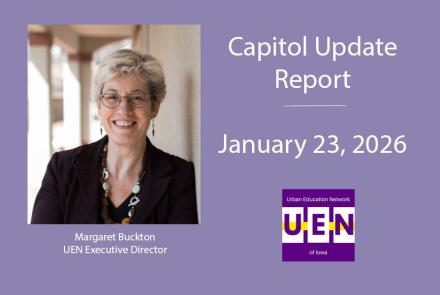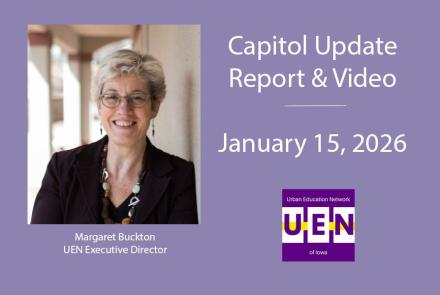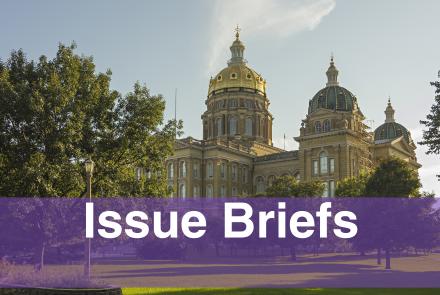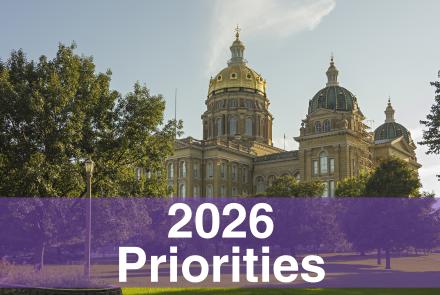Call to Action - Vouchers Pass Senate and Move to the House - March 31, 2022
Updated CALL TO ACTION
Education Savings Accounts (Vouchers) Including Operational Sharing
March 31, 2022
Download the full UEN CALL TO ACTION
The Senate amended and passed SF 2369 Governor’s School Choice Omnibus. Here’s what they did:
- Replaced the Governor’s Transparency Provisions with the content from SF 2205 Parents’ Bill of Rights. (UEN is OK with that change.)
- Approved the Governor’s Education Savings Account (Voucher) plan with no changes.
- Also approved the Governor’s Social Studies provisions (including a high-stakes test for graduating) and the Open Enrollment good cause for siblings.
- Deleted the Governor’s Small School Enrollment Division (funding for districts below 500 enrollment) and replaced it with new Student First Operational Sharing Fund: deposits 1/3 of regular program savings associated with each voucher into a new fund, extends operational sharing for 10 years, adds an SRO to the positions which can be shared to generate weighting and allows districts to go to the SBRC to ask for a new cap of 24 students (about $22K more per district than current law). If they demonstrate the need for the position, allows the SBRC to grant funding from the Operational Sharing Fund. (UEN typically does not access Operational Sharing incentives, but would generally oppose and additionally bureaucratic process for the increased cap.)
- Adds the text of HF 2081 Elimination of Praxis test for licensure (UEN supports).
- Adds the text of HF 2567 Mandatory Reporter/Incidents Related to Licensed Practitioners. (Improves that process so districts can check a licensure database rather have to call the BOEE to check if there is a pending investigation prior to hiring any licensed employee. Slightly different from the House’s HF 2567. UEN supports this change.)
- Includes waiving the CEU requirements for master’s and higher degreed teachers for license renewal, except for evaluator training, and instead have the individual’s evaluator verify they participated in professional development (text from HF 2398). (UEN supports.)
What’s next? The House could assign the bill to the House Education Committee, where it would be considered dead since it did not survive the March 18 funnel deadline. They could also assign it to the House Appropriations Committee, where it could be approved as is, amended or left there without consideration.
Key Messages:
- Taxpayer dollars require accountability and a level playing field. This bill specifically states that private schools do not need to change application or academic procedures to accept vouchers. They also say that nothing in these bills is to be construed as giving the DE or public schools any authority to impose requirements on private schools (such as accepting all students, providing special education services, or working with students below grade level).
- This is a slippery slope toward a more expansive voucher system. In other states, they started with similar proposals, that grew bigger along the way. Homeschool parents testified at both Senate Subcommittee meetings, already asking for expansion. The unparalleled growth of school tuition organization (STO) tax credits in Iowa is good evidence that expansion will happen here.
- Iowa already has school choice. Unlimited open enrollment, STO support for tuition to private schools, virtual academies and two kinds of home school assistance (now including tuition and textbook tax credits for home school parents).
- This is a costly commitment: beginning at $55 million and potentially growing to half a billion if expanded, at a time when the priorities of tax cuts have already been enacted. The State is struggling to meet the funding requirements of public education. It is ill-advised to provide financial support to a second education system.
- Vouchers are bad for Rural Schools, even if they don’t have a private school option: The greatest damage to all public schools, including rural schools is two-fold: 1) Expanded vouchers will create demand for even more teachers in private schools. Teachers are in short supply. This demand would squeeze the labor pool, further disadvantaging rural schools who are no longer alone in the struggle to find staff. 2) Rural and all public schools will suffer from the inevitable expansion of vouchers and the inability of the State to adequately fund public schools which educate 94% of Iowa children. $55 million would be better spent on meeting the challenges of high-needs schools and increased SSA.
- Approve what’s good in SF 2369: delete the Education Savings Accounts Division II and delete Division III High Stakes Social Studies test, but keep the policy improvements such as eliminating the Praxis test, removing CEU requirements from experienced, higher-degreed teachers, and extension of Operational Sharing incentives without the bureaucratic approval process.
Find your Representatives here: https://www.legis.iowa.gov/legislators/house
To call and leave a message at the Statehouse, the House switchboard operator number is 515.281-3221. You can ask if they are available, leave a message for them to call you back, or just leave a short message such as “Oppose SF 2369 Governor’s School Choice Vouchers.” (Legislators are typically at the Capitol from Monday midday through Thursday afternoon. Contact them at home over the weekend.)


